会议资讯
国际古迹遗址日世界文化遗产主场活动在杭州良渚顺利举行
转载自公众号“中国古迹遗址保护协会”。
4月18日,由中国古迹遗址保护协会、浙江省文物局、杭州市余杭区人民政府共同主办,杭州良渚遗址管理区管理委员会、中国古迹遗址保护协会考古遗产管理专业委员会、浙江省文物保护利用协会共同承办的2024年国际古迹遗址日世界文化遗产主场活动在良渚古城遗址成功举行。
故宫博物院院长、中国文物保护技术协会理事长王旭东,中国文物学会会长、故宫博物院学术委员会主任单霁翔,中国文物保护基金会咨询委员会主任励小捷,中国古迹遗址保护协会理事长宋新潮,中国科学院院士、同济大学教授常青,浙江省文化广电和旅游厅党组成员、文物局局长朱海闵,浙江省文物保护利用协会会长杨建武,杭州市委常委、余杭区委书记刘颖,杭州良渚遗址管理区党工委书记、管委会主任王姝,良渚博物院(良渚研究院)院长、北京大学考古文博学院教授徐天进等出席开幕式。开幕式由中国古迹遗址保护协会副理事长兼秘书长、国家文物局文物古迹司(世界文化遗产司)司长邓超主持。
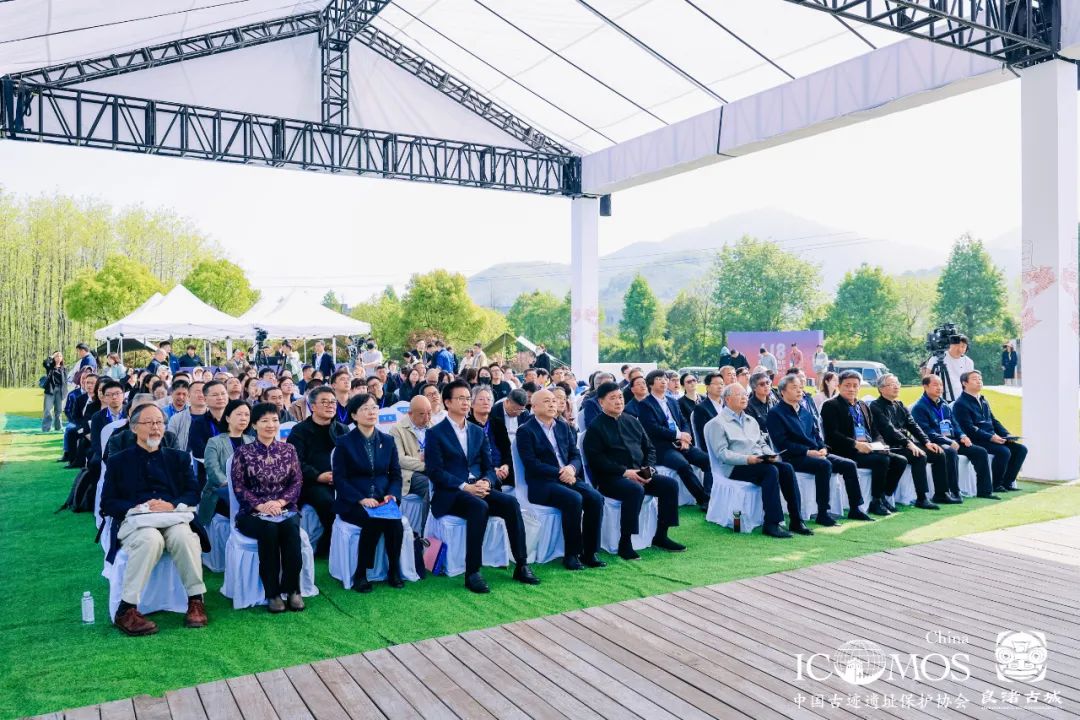
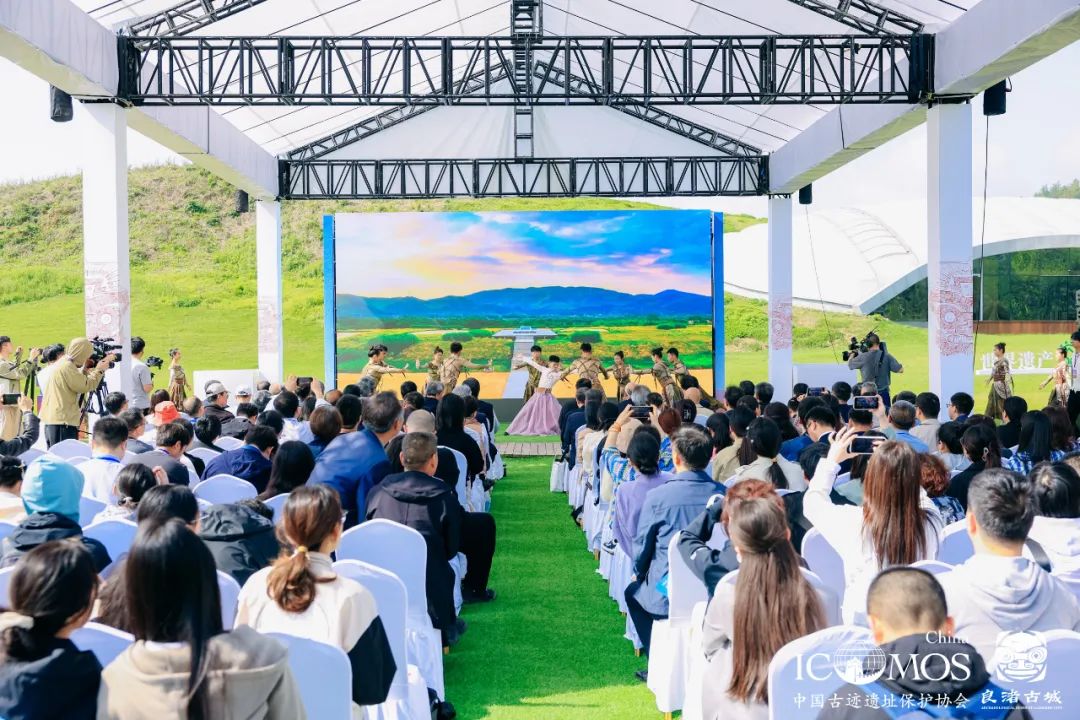
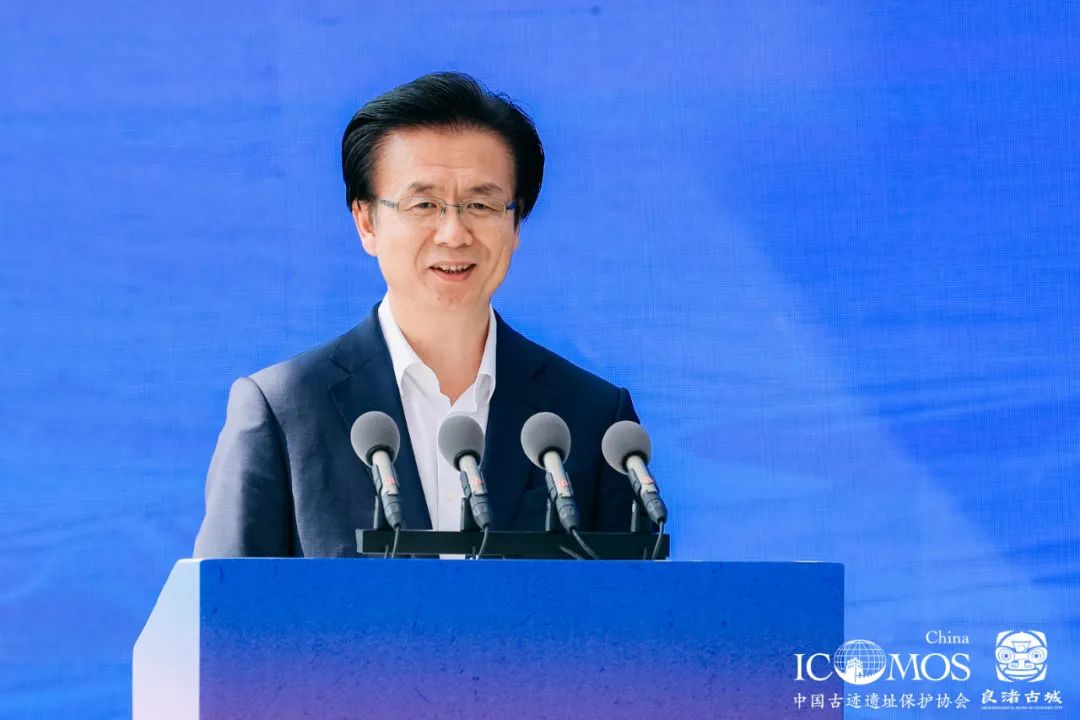
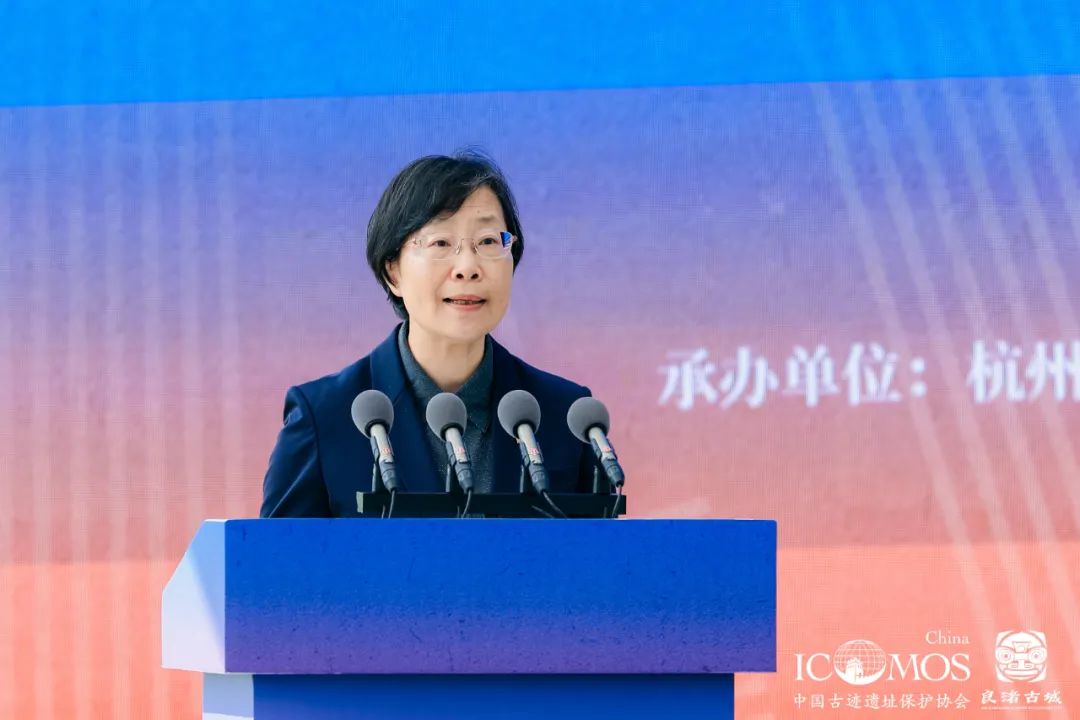
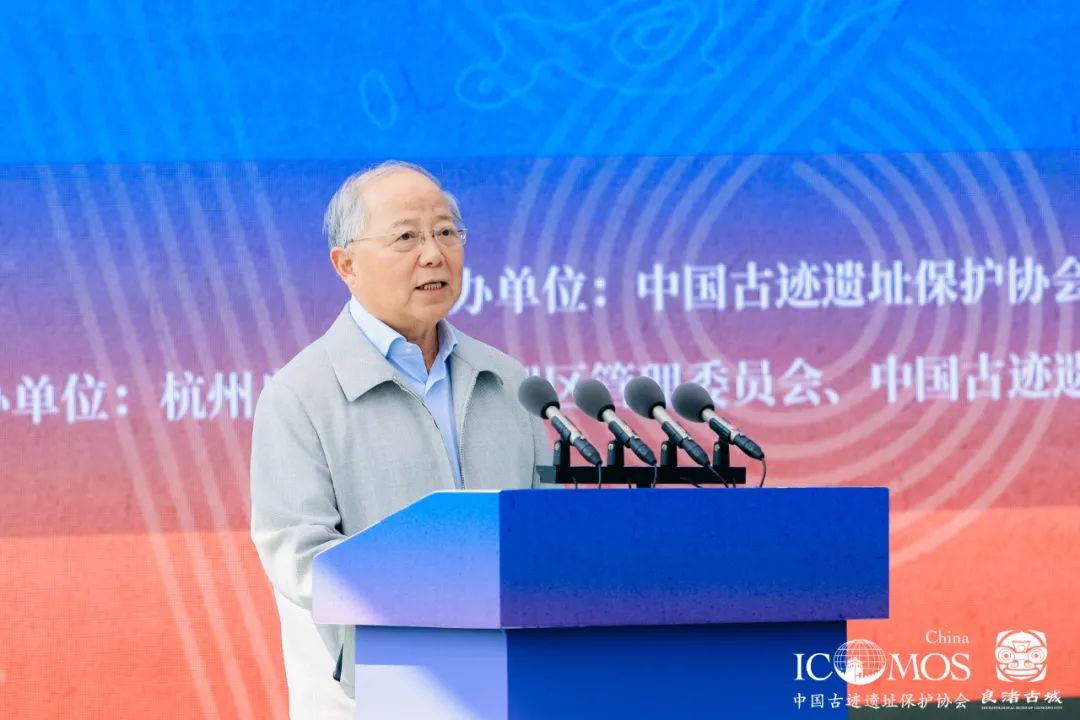
宋新潮对今年国际古迹遗址日主题“《威尼斯宪章》60年与时代挑战”进行了主题阐释。他从《威尼斯宪章》诞生的时代背景、精神与影响、对中国文化遗产保护事业的影响、以及在当下的时代意义四个方面,全面梳理了《威尼斯宪章》所承载的内涵和意义,提出在当下应在思想上认识《威尼斯宪章》的宗旨精髓,认真贯彻落实习近平总书记关于加强文化遗产保护传承、弘扬中华优秀传统文化的重要指示批示精神,尊重世界文明的多样性,坚守开放交流合作,要坚持遗产及其环境整体保护理念,要强化科学研究,以科技创新助力新时代文化遗产保护。
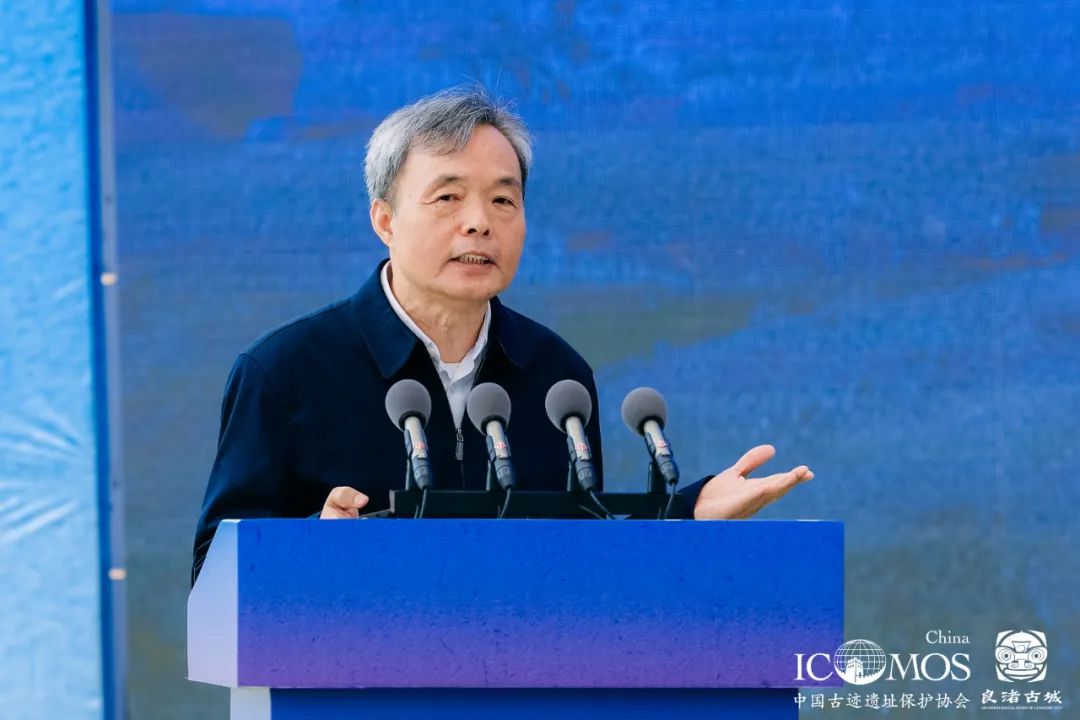
活动期间,单霁翔为本次活动做了《文化遗产保护的时代挑战》主题报告。协会副理事长、清华大学建筑学院张杰教授举行了《历史城市的保护与复兴》公众讲座。协会考古遗产管理专业委员会正式成立,由徐天进教授担任主任委员,王旭东、宋新潮、刘颖、朱海闵为专委会揭牌。活动期间还举行了《威尼斯宪章》60年与时代挑战的专题展览。
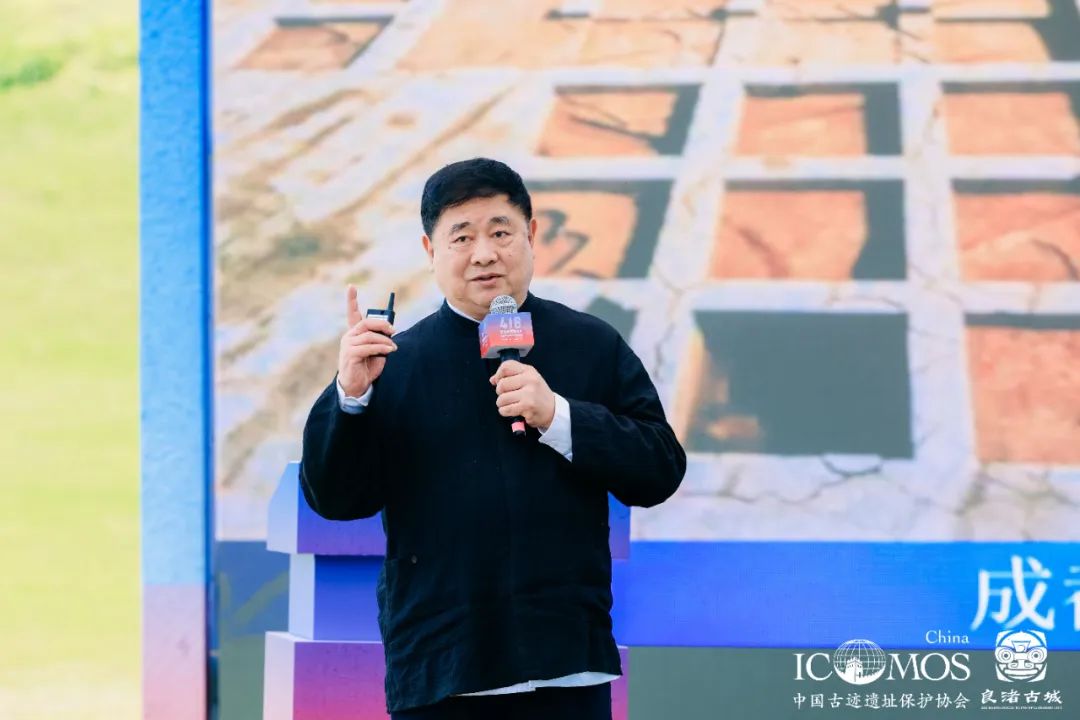
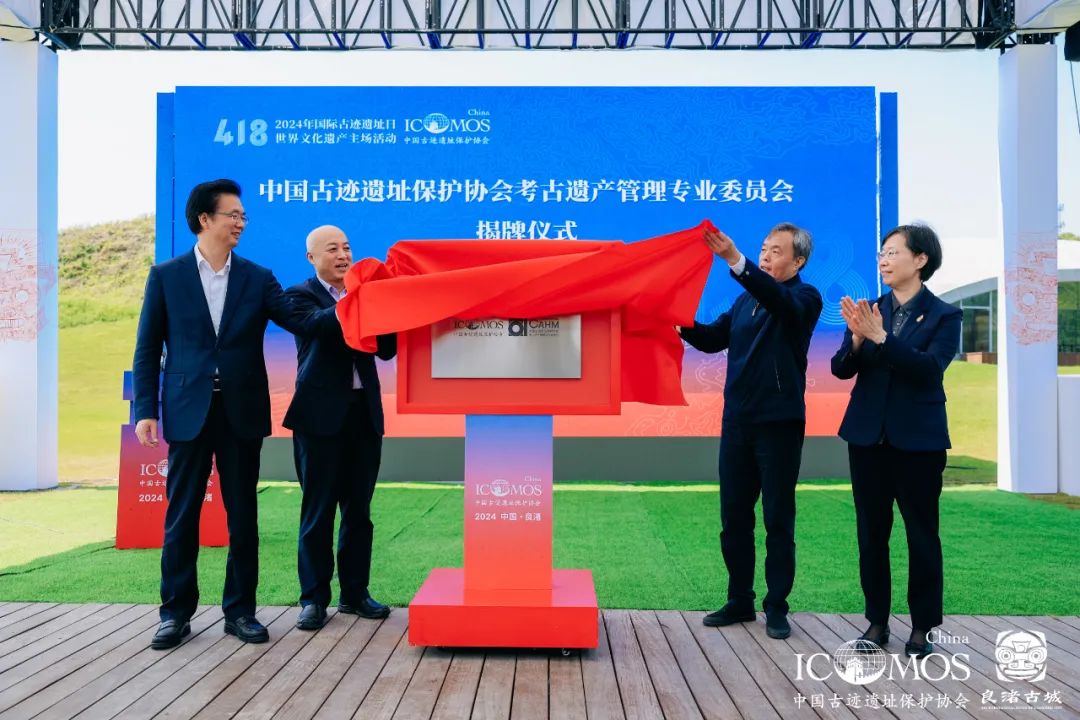
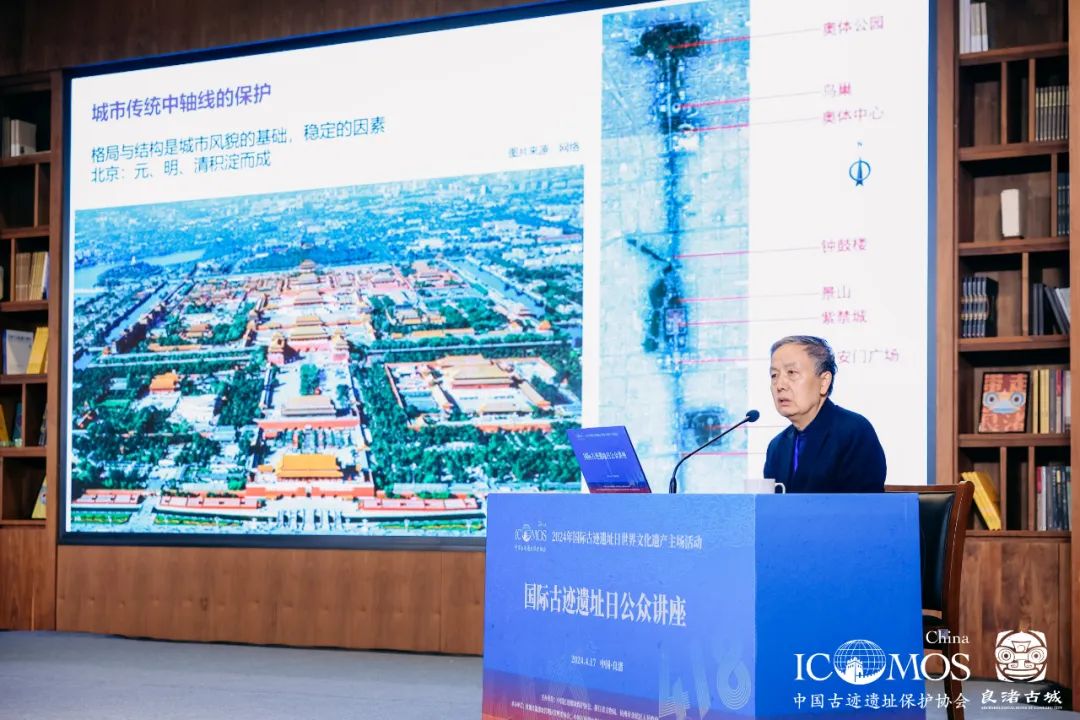
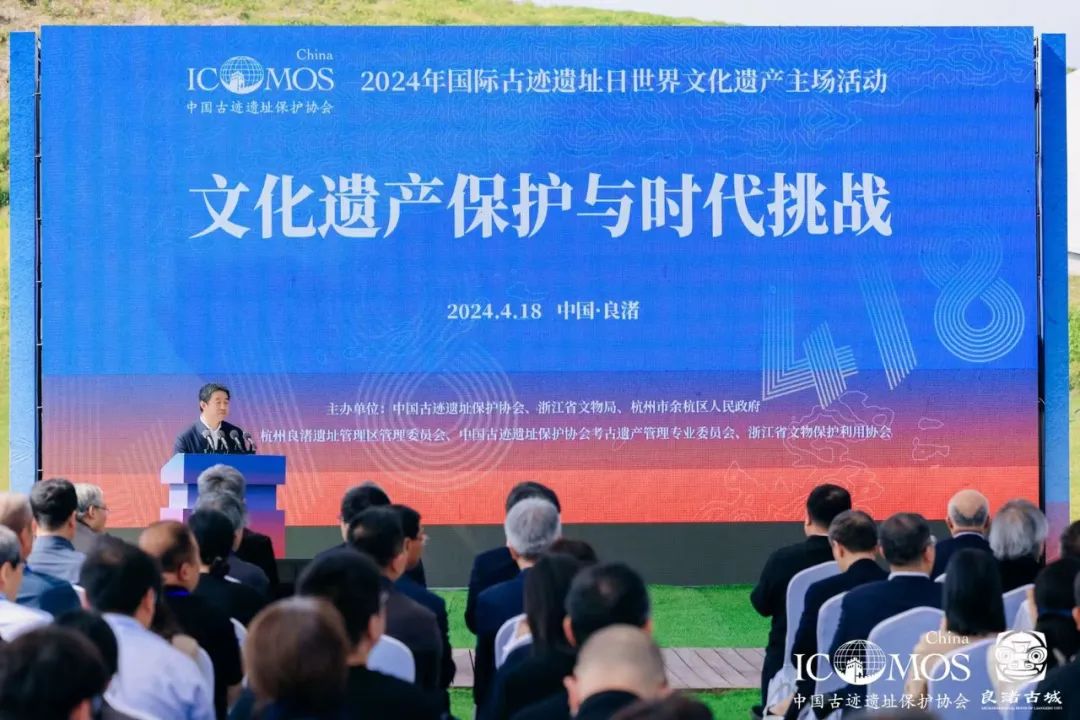
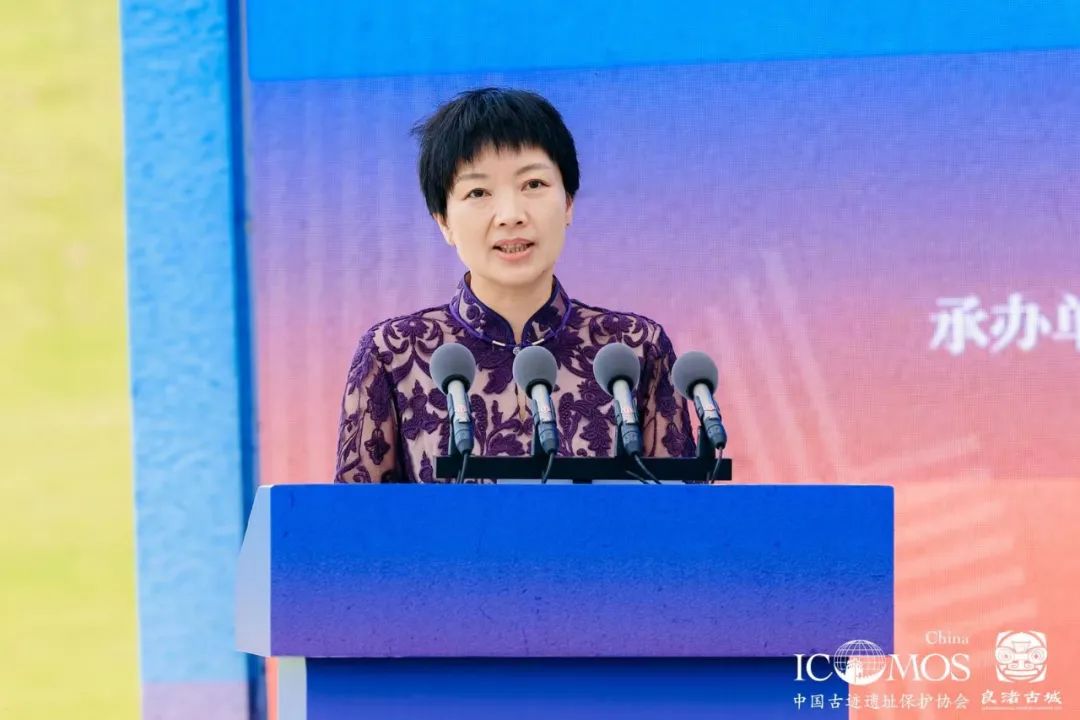
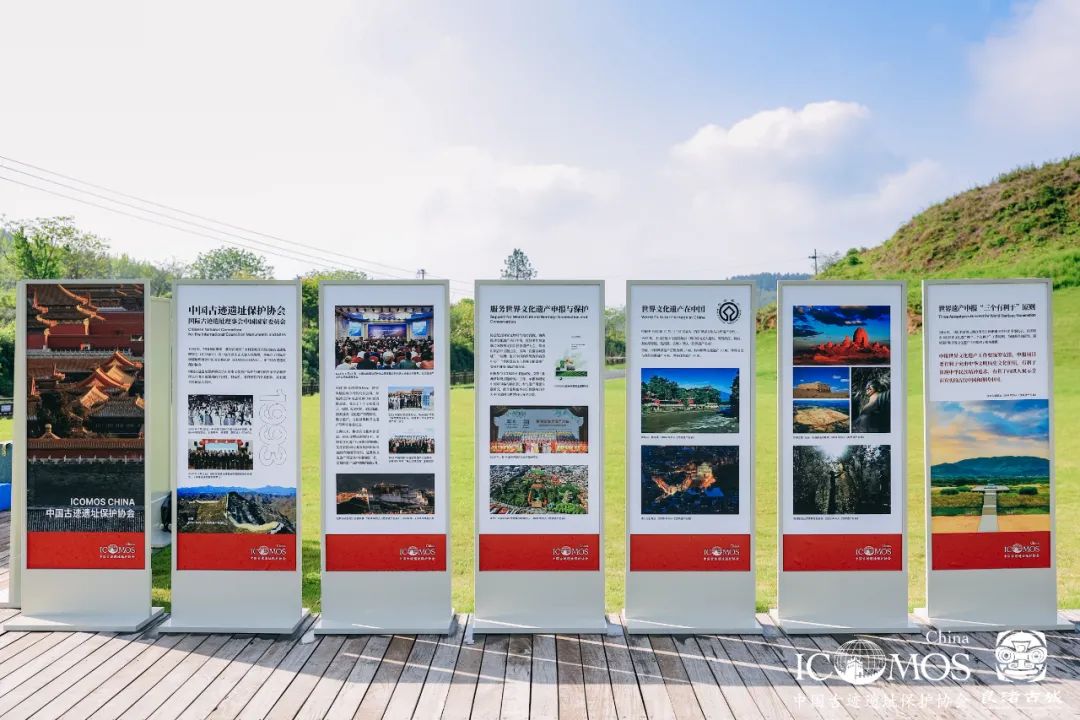
自1983年联合国教科文组织第22届大会通过,每年的4月18日为“国际古迹遗址日”,旨在全球范围内宣传推广遗产保护理念,提升公众遗产保护意识。今年恰逢文化遗产领域划时代的国际文件《威尼斯宪章》发布60周年,年度主题定为“《威尼斯宪章》60年与时代挑战”。中国古迹遗址保护协会响应这一主题,举办本次主场活动,推广《威尼斯宪章》理念,探讨文化遗产保护事业的未来。
2024 ICOMOS Day Thematic Event in China
On April 18th, the 2024 International Dayfor Monuments and Sites, the main event of World Cultural Heritage, wassuccessfully held at the Liangzhu Ancient City Site, co-hosted by the ICOMOSChina, the Zhejiang Provincial Cultural Relics Bureau, and the People'sGovernment of Yuhang District, Hangzhou. The event was jointly organized by theManagement Committee of the Liangzhu Site, the Archaeological HeritageManagement Professional Committee of the Chinese Association for the Protectionof Antiquities, and the Zhejiang Provincial Association for the Protection andUtilization of Cultural Relics.
The opening ceremony was attended by WangXudong, Director of the Palace Museum, and Chairman of the Chinese Associationfor Cultural Heritage Conservation Technology; Shan Jixiang, President of theChinese Society of Cultural Relics, and Director of the Academic Committee ofthe Palace Museum; Li Xiaojie, Director of the Consultation Committee of theChina Cultural Heritage Foundation; Song Xinchao, Chairman of ICOMOS China;Chang Qing, Academician of the Chinese Academy of Sciences and Professor atTongji University; Zhu Haimin, Member of the Party Group of the ZhejiangProvincial Department of Culture, Radio, Television, and Tourism, and Directorof the Cultural Relics Bureau; Yang Jianwu, President of the ZhejiangProvincial Association for the Protection and Utilization of Cultural Relics;Liu Ying, Member of the Standing Committee of the Hangzhou Municipal PartyCommittee and Secretary of the Yuhang District Party Committee; Wang Shu,Secretary of the Party Working Committee and Director of the ManagementCommittee of the Liangzhu Site; Xu Tianjin, Director of the Liangzhu Museum(Liangzhu Research Institute) and Professor at the School of Archaeology andMuseology, Peking University, and others. The opening ceremony was chaired byDeng Chao, Vice Chairman and Secretary-General of the Chinese Association forthe Protection of Antiquities, and Director of the Department of CulturalRelics and Monuments of the State Administration of Cultural Heritage (WorldHeritage Department).
At the opening ceremony, guests such as LiuYing, Zhu Haimin, and Li Xiaojie delivered speeches. Ms. Theresa Patricio, Presidentof the International Council on Monuments and Sites, sent a video message,congratulating on the hosting of the main event in China. She pointed out thatin the 60 years since the publication of the Venice Charter, there has been asignificant change in the concept of heritage, evolving from the protection ofindividual monuments and sites to a comprehensive protection system, with anincreasing number of actors and stakeholders involved. She invited culturalheritage workers in China to actively participate in the annual thematicdiscussions, providing valuable insights into the response strategies andpractical significance of heritage under challenges such as climate change,conflicts, and natural disasters.
Song Xinchao provided an exposition on thisyear's theme for the International Day for Monuments and Sites, "60 Yearsof the Venice Charter and Contemporary Challenges." He comprehensivelyanalyzed the significance of the Venice Charter from four aspects: thehistorical background of its birth, its spirit and influence, its impact on theconservation of cultural heritage in China, and its contemporary relevance.Song highlighted the essence and significance carried by the Venice Charter,emphasizing the importance of understanding its principles in contemporarythinking. He called for earnest implementation of the important instructionsfrom General Secretary Xi Jinping on strengthening the protection andinheritance of cultural heritage and promoting the excellent traditionalChinese culture, respecting the diversity of world civilizations, adhering toopenness, exchange, and cooperation, maintaining the concept of holisticprotection of heritage and its environment, and strengthening scientificresearch to leverage technological innovation for the protection of culturalheritage in the new era.
During the event, Shan Jixiang delivered akeynote report on "The Contemporary Challenges of Cultural HeritageConservation." Professor Zhang Jie, Vice Chairman of the Association andfrom the School of Architecture at Tsinghua University, held a public lectureon "The Protection and Revival of Historic Cities." The ProfessionalCommittee for Archaeological Heritage Management of the Association wasformally established, with Professor Xu Tianjin serving as the chairman, andWang Xudong, Song Xinchao, Liu Ying, and Zhu Haimin unveiling the committee.Additionally, a special exhibition on "60 Years of the Venice Charter andContemporary Challenges" was held during the event.
On the afternoon of the 18th, a specialacademic symposium was held. Experts and scholars such as Wang Xudong, ChangQing, Zhang Jie, Jiang Weidong, Li Xiangdong, Zhan Changfa, Lu Yuanzheng, LiuKecheng, Dong Wei, Shao Yong, Wang Lijun, among others, gave speeches on theVenice Charter and its impact on China. Xu Tianjin and Jiang Bo moderated thespeeches and discussion sessions.
Representatives from the main organizingunits, including the Executive Council, specialized committees, and members ofthe Chinese Association for the Protection of Antiquities, as well asrepresentatives from cultural heritage research institutions such as theChinese Academy of Cultural Heritage, the Archaeological Research Center of theState Administration of Cultural Heritage, the Chinese Cultural Relics Newspaper,the China Cultural Heritage Foundation, the Palace Museum, the Institute ofArchaeology of the Chinese Academy of Social Sciences, Tsinghua University,Peking University, Tongji University, Yungang Research Institute, and dozens ofother cultural heritage protection research institutions; leaders, departments,and representatives from Zhejiang Province, Hangzhou City, Yuhang District,universities, and related media, totaling more than 100 people, attended theevent.
Since the 22nd General Conference of UNESCOin 1983, April 18th has been designated as "International Day forMonuments and Sites," aiming to promote heritage conservation conceptsglobally and raise public awareness of heritage protection. This year marks the60th anniversary of the groundbreaking international document in the field ofcultural heritage, the Venice Charter. The annual theme was set as "60Years of the Venice Charter and Contemporary Challenges." The ChineseAssociation for the Protection of Antiquities responded to this theme byhosting the main event, promoting the principles of the Venice Charter, anddiscussing the future of cultural heritage conservation.
